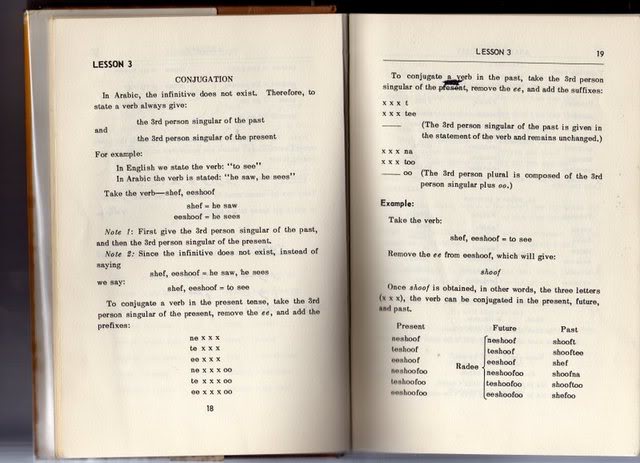Woodrow
May Allah have mercy on him رحمة الله عليه
- Messages
- 17,217
- Reaction score
- 4,224
- Gender
- Male
- Religion
- Islam
One thing to keep in mind. There are some differences between colloqual Arabic and Qur'anic or pure Arabic.
However, the grammar rules used in the Qur'an will always be appropriate if a person is ever in doubt.
Here are some typical verbs, try to find the "root" letters in each.
shef, eeshoof (He saw. He sees)
Ja, eejee (He came. He comes.)
Cal, eecol (He said. He says)
araf, eearaf (He knew. He Knows)
However, the grammar rules used in the Qur'an will always be appropriate if a person is ever in doubt.
Here are some typical verbs, try to find the "root" letters in each.
shef, eeshoof (He saw. He sees)
Ja, eejee (He came. He comes.)
Cal, eecol (He said. He says)
araf, eearaf (He knew. He Knows)

 Brother
Brother 
